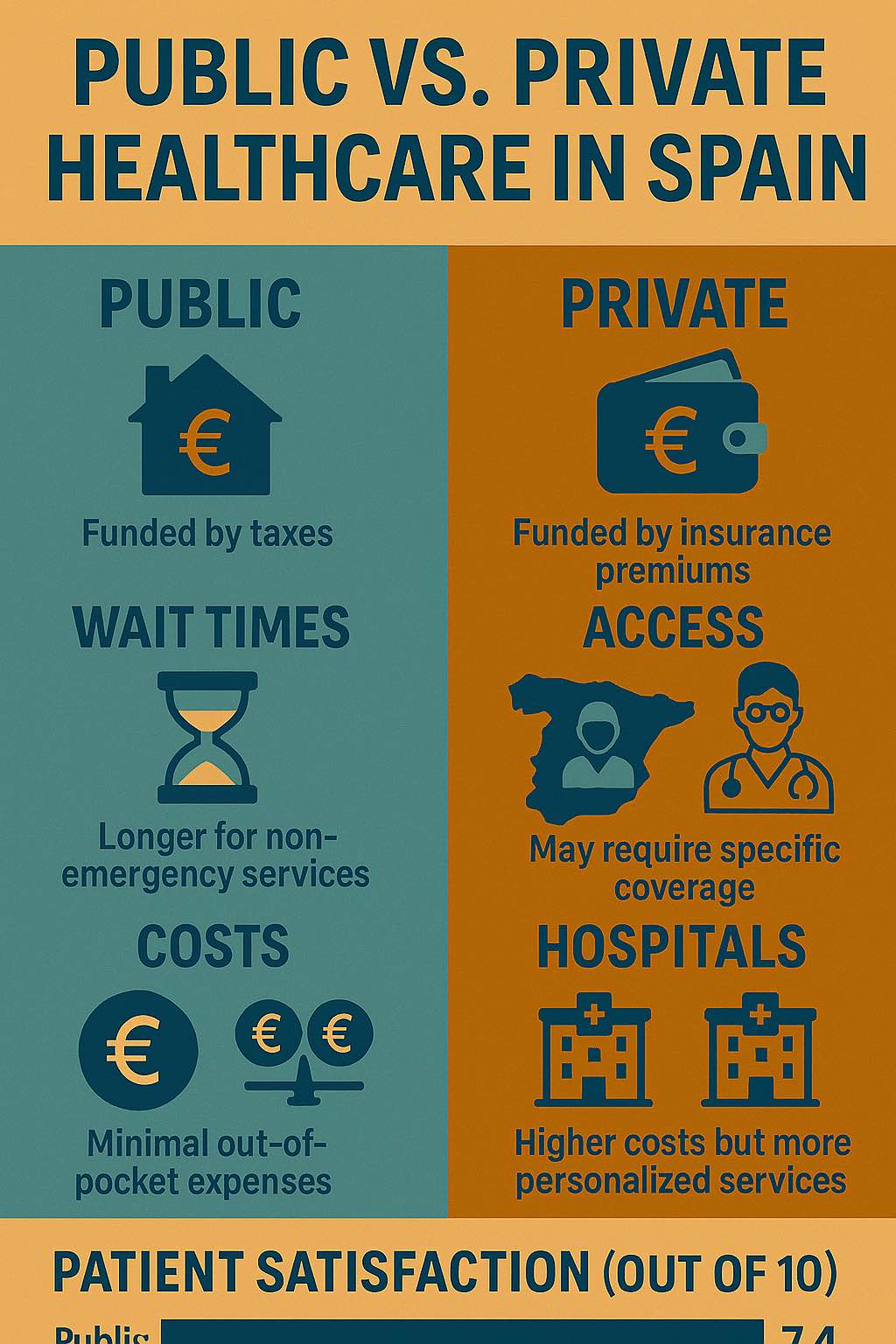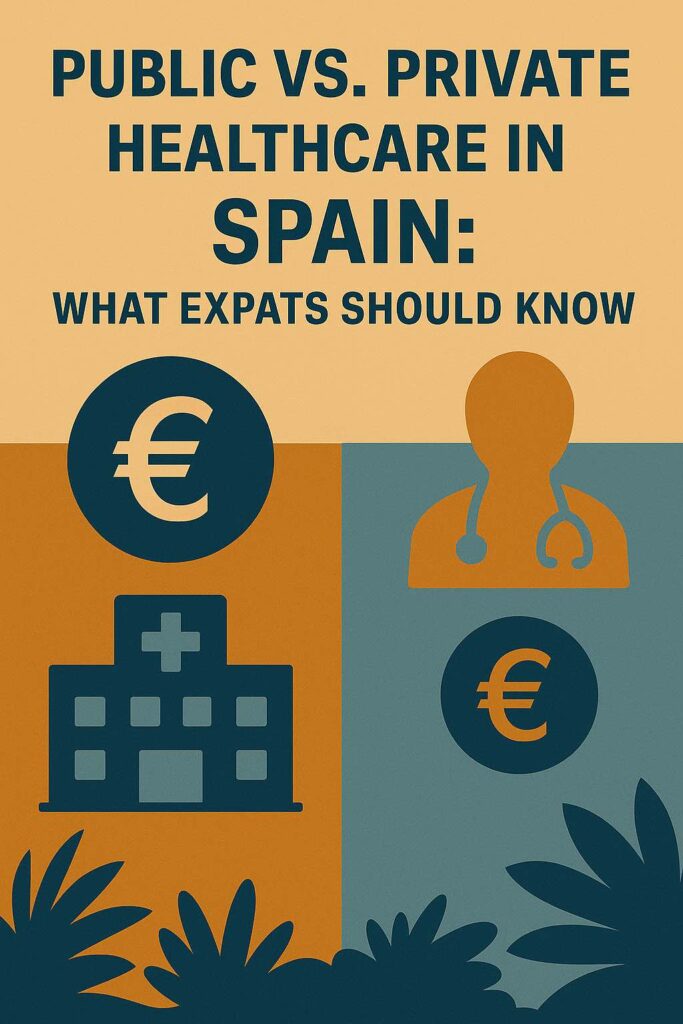Public vs. Private Healthcare in Spain: Spain is often praised for its excellent healthcare system, which consistently ranks among the top in Europe. For expats, however, navigating the differences between public and private healthcare can be confusing. Understanding how both systems work is key to making informed decisions about your medical care while living in Spain.
Overview of Spain’s Public Healthcare System
Spain’s public healthcare system, known as the Servicio Nacional de Salud (SNS), is funded through taxes and provides nearly universal coverage to residents. It is considered one of the most accessible systems in Europe, with most basic and emergency services available free of charge at the point of use.
- Eligibility: Public healthcare is available to Spanish citizens, residents paying into social security, and EU/EEA citizens with a valid EHIC card. Non-EU expats may also qualify once they contribute to the social security system.
- Costs: Most services are free, but patients may need to pay small contributions for prescriptions.
- Strengths: High-quality care, extensive network of hospitals and clinics, and no direct medical bills for covered services.
- Weaknesses: Long waiting times for specialists and non-urgent treatments, limited English-speaking staff in smaller towns.
Private Healthcare in Spain
Alongside the public system, Spain has a robust private healthcare sector. Many expats choose private insurance either to supplement public care or to avoid wait times.
- Costs: Monthly premiums range from €40–€120 depending on age, coverage, and provider. Consultations without insurance typically cost €50–€100, while specialist visits and hospital stays can be significantly more expensive.
- Strengths: Shorter waiting times, access to private hospitals with modern facilities, English-speaking doctors in expat hubs, and greater flexibility when choosing specialists.
- Weaknesses: Ongoing premiums, potential exclusions for pre-existing conditions, and limited coverage for the elderly in some policies.
Key Differences Between Public and Private Healthcare
| Aspect | Public Healthcare | Private Healthcare |
|---|---|---|
| Cost | Free at point of use (small prescription fees) | Monthly premiums + possible co-payments |
| Access | Automatic for residents paying into social security | Based on insurance plan |
| Waiting Times | Long for non-urgent care | Shorter, faster access to specialists |
| Language Support | Limited in smaller towns | More English-speaking staff in major cities |
Which Option Should Expats Choose?
The decision often depends on your personal circumstances:
- If you are employed or self-employed in Spain: You will automatically contribute to social security and access the public system, which covers most needs.
- If you are retired: EU retirees can access public healthcare with the S1 form. Non-EU retirees often need private insurance to obtain residency.
- If you want faster access and English-speaking doctors: A private health insurance plan can complement the public system, especially in urban areas with large expat populations.
How Expats Usually Combine Both Systems
Many expats choose to rely on public healthcare for emergencies and everyday needs while maintaining private insurance for speed and comfort. This hybrid approach provides the best of both worlds: affordable coverage with the option of premium care when necessary.
Related Guides
For more details on health coverage and costs in Spain, check out:
- Best Health Insurance Options for Expats in Spain (2025)
- Understanding the Public Healthcare System in Spain
Conclusion
Spain’s healthcare system is one of the country’s greatest advantages for expats. While the public system ensures broad coverage, private healthcare provides speed, convenience, and peace of mind. Combining both is often the most effective strategy for a safe and comfortable life in Spain.


Pingback: Public Healthcare System in Spain: A Complete Guide for Expats (2025) - Move to Spain hub